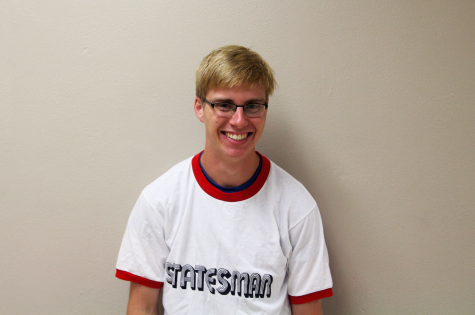It’s time to kill “kms”
The dark side of dark humor
October 29, 2018
Note: This article’s focus is on students who are prone to anxious thoughts or relatively short seasons of depression. It doesn’t really dig into clinically diagnosed depression, anxiety or legitimate thoughts of suicide.
“I wanted to kill myself.”
It’s one of many slogans our generation loves. I’ve said it before. You’ve probably heard it said before. Dark, self-deprecating comedy has become so popular that it’s just part of being a high schooler in 2018. When you forget to do your homework, you say “oh, shoot me.” A failed test warrants a quick “I want to die.” Obviously most of the students who tell their friends to “end them” aren’t serious. However, as someone who’s made these comments practically every day for the past two years, I’m trying to stop. I’m learning why I need to kill the phrase “kill myself.”
I first started referencing suicide in jokes during my freshman year. There was such an edge to just saying the words “kill myself.” However, it wasn’t just the shock-value that made the jokes so attractive. For an anxious freshman, it felt good to declare that you have “crippling anxiety” (that was the trendy phrase two years ago). You get to express momentary feelings or even long-term struggles. Conveniently though, everything remains under the mysterious guise of humor. If anyone expresses legitimate concern, you’re just joking. It’s a common way of dealing with sadness and anxiety found across the Internet and in the halls of LHS.
The problem with this coping mechanism is it makes it hard to be honest about your emotions. It’s one thing to make an off-hand comment after you fail a test. The issues begin when “shoot me” becomes a reaction to every negative thing that crosses your way.
“For a lot of people saying those things is somewhat of a coping mechanism. Now is it a good coping mechanism? Maybe, maybe not, but it comes back to if someone is joking about those things all the time, now maybe there is more of a concern than someone who just one-off says ‘kill me’,” said Matthew Meyers, a counselor at LHS.
One of the first signs that someone is having suicidal thoughts is making jokes or comments about suicide or depression. Even if they aren’t having suicidal thoughts, we know when our friend is feeling sad or lonely based largely on the things they say. However, if they’re always joking that they’re depressed, it becomes hard to tell when they are actually feeling that way.
Another reason why I’ve tried removing such dark jokes from my life is the effect I saw them having on my personal mood. As a freshman, I joked about wanting to die when I was disappointed in something or when I was uncomfortable. As I went into my sophomore year, though, I saw “kill me” being to punctuate every interaction I had with a teacher or student. The phrase fueled a cycle of rumination where I would go through conversations I’d had days before and assign each of my “mistakes” its own individual “Ugh, I hate myself.” The root of the problem wasn’t the phrases or jokes themselves. I understand that plenty of people say them without seeing an impact on their personal well-being. Despite this, what we tell ourselves matters. If you’re already prone to self-criticism, then saying that you want to die every time you mess up is only going to make your problem worse.
If there’s one thing I know about this topic, it’s that you can’t force high schoolers to stop joking about depression. In fact, I’m sure that someone has already what might be a very funny quip about this very article. Our counselors’ annual appeal to stop making depression jokes is always followed by someone remarking “That assembly made me want to kill myself.” But if you’re someone who says something similar to “I want to die” on a semi-regular basis, I’d recommend just keeping track of how often you’re saying it. When I became aware of just how often I was saying that I wanted to die, I was surprised. Do not underestimate the power of what you say to yourself.










diego • Oct 29, 2018 at 2:33 pm
nah